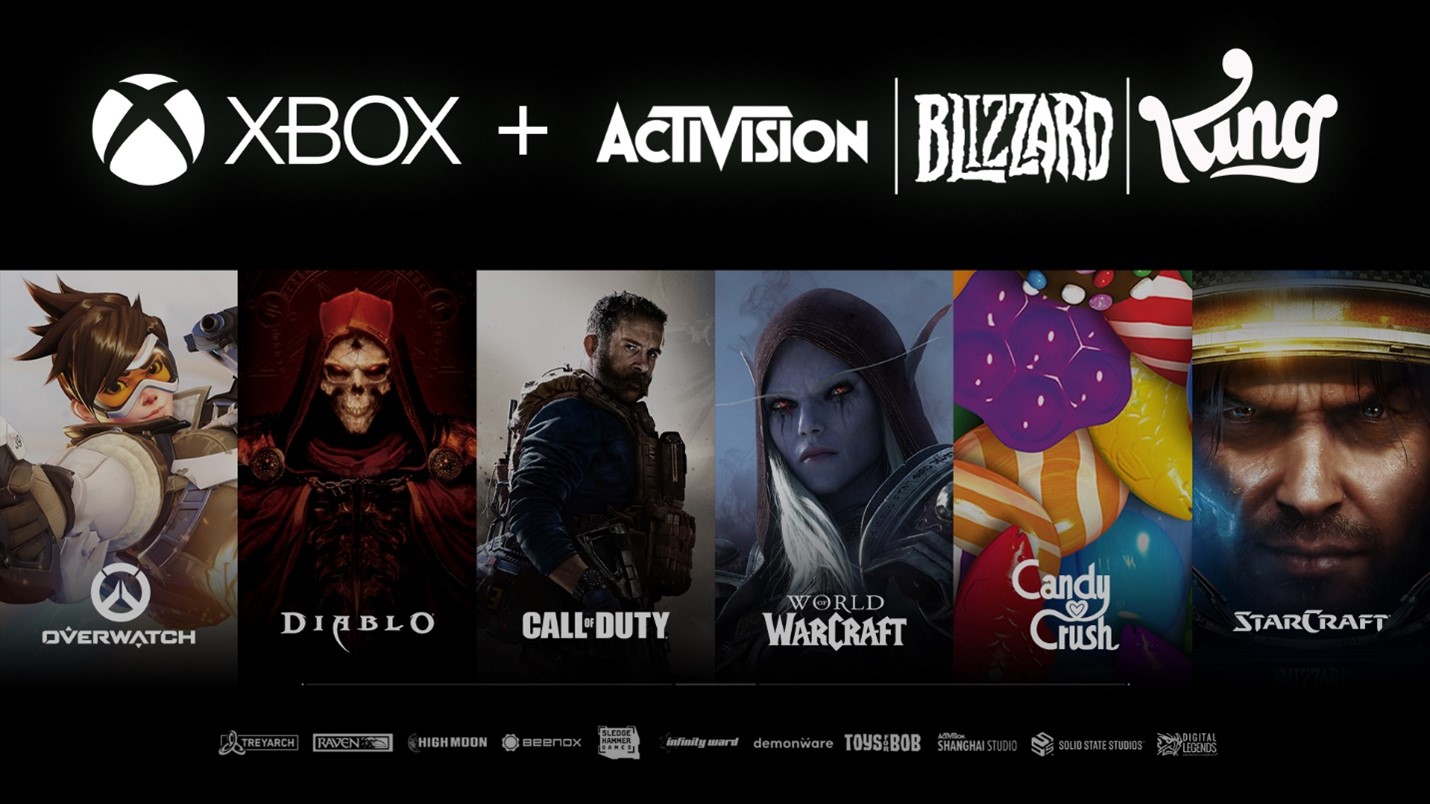By Kevin Torres, Contributing writer
After many months, the U.K. Competition and Markets Authority greenlit Microsoft’s purchase of Activision Blizzard for 68 billion dollars.
The deal was approved by the E.U., U.K., and U.S. because it will improve cloud gaming, and Microsoft agreed to let Ubisoft Entertainment buy Activision’s cloud gaming rights, meaning all Activision cloud gaming content will be owned by Ubisoft.
Activision Blizzard, known for Call of Duty, World of Warcraft, Candy Crush, and Tony Hawk is the latest purchase by Microsoft. Although Xbox chief, Phil Spencer, confirmed that the game pass, Xbox’s subscription-based service, won’t have any Activision Blizzard games until 2024,he indirectly said they will be getting added gradually. Plus, companies such as Nintendo and Sony have signed a deal to have Call of Duty on their platform for the next ten years.
A precedence from physical media to digital media and cloud gaming is apparent, as Microsoft’s Game Pass, a digital-only library, continues to get Day-One releases, and Alan Wake 2, a triple-A game, was released as an online only product.
Game Pass is the prime example of a large company, Microsoft, shifting its focus to the digital landscape. The platform allows people to play their Xbox Game Pass catalog on the cloud, and the person does not even need a console or PC, just a smart TV and good internet. It is like how people have been replacing a trip to the theaters with streaming movies; physical video games are being replaced by cloud services and digital media.

Gamers who attended a Smash Bros. Ultimate Tournament at Saint Leo University had a lot of opinions about digital-only games.
“It’s more convenient than getting a physical copy,” said Ashton Colson, a sophomore majoring in cybersecurity. “It allows me to just get it instantly instead of having to wait, [and not needing to] drive to a local store to buy a physical copy.”
Convenience is a priority, especially considering the newer generation of gamers came after the industry’s shift to a digital first landscape.
“I never really thought about that too much,” Colson said about physical games potential removal. “But if it did stop existing, I couldn’t really see the bad part about it. I don’t feel like it’s going to change anything too much.”
The common factor that those who prefer digital share is their priority with convenience, and many do not think about the possibility of a digital-only era.
“I prefer digital for the most part,” said Andrew Burgess, a freshman majoring in English. “It just takes a lot of space; it’s convenient.”
However, Burgess has a different opinion about the future of physical copies.
“With physical games,” Burgess said, “I think there is that tangibility aspect that I think people forget about, to be able to just physically hold the game. I think it’s something people should go back to.”
There’s nothing stating that physical games will cease to exist any time soon, but profits indicate that it would be more beneficial for companies. With the newer generation of gamers being raised in a digital-only world, where the most popular games can only be acquired online, it would be no surprise if physical copies would slowly begin to fade.





